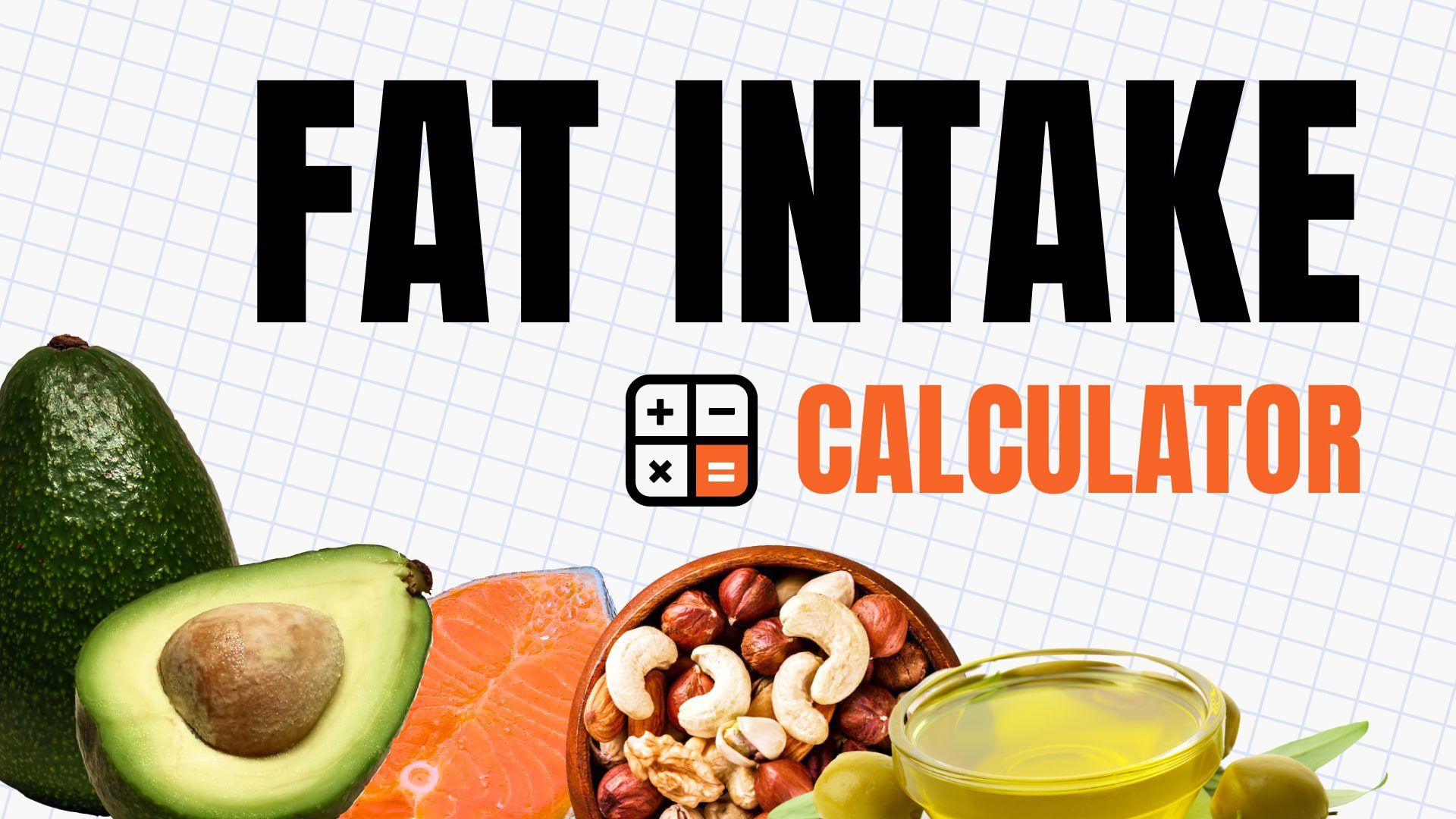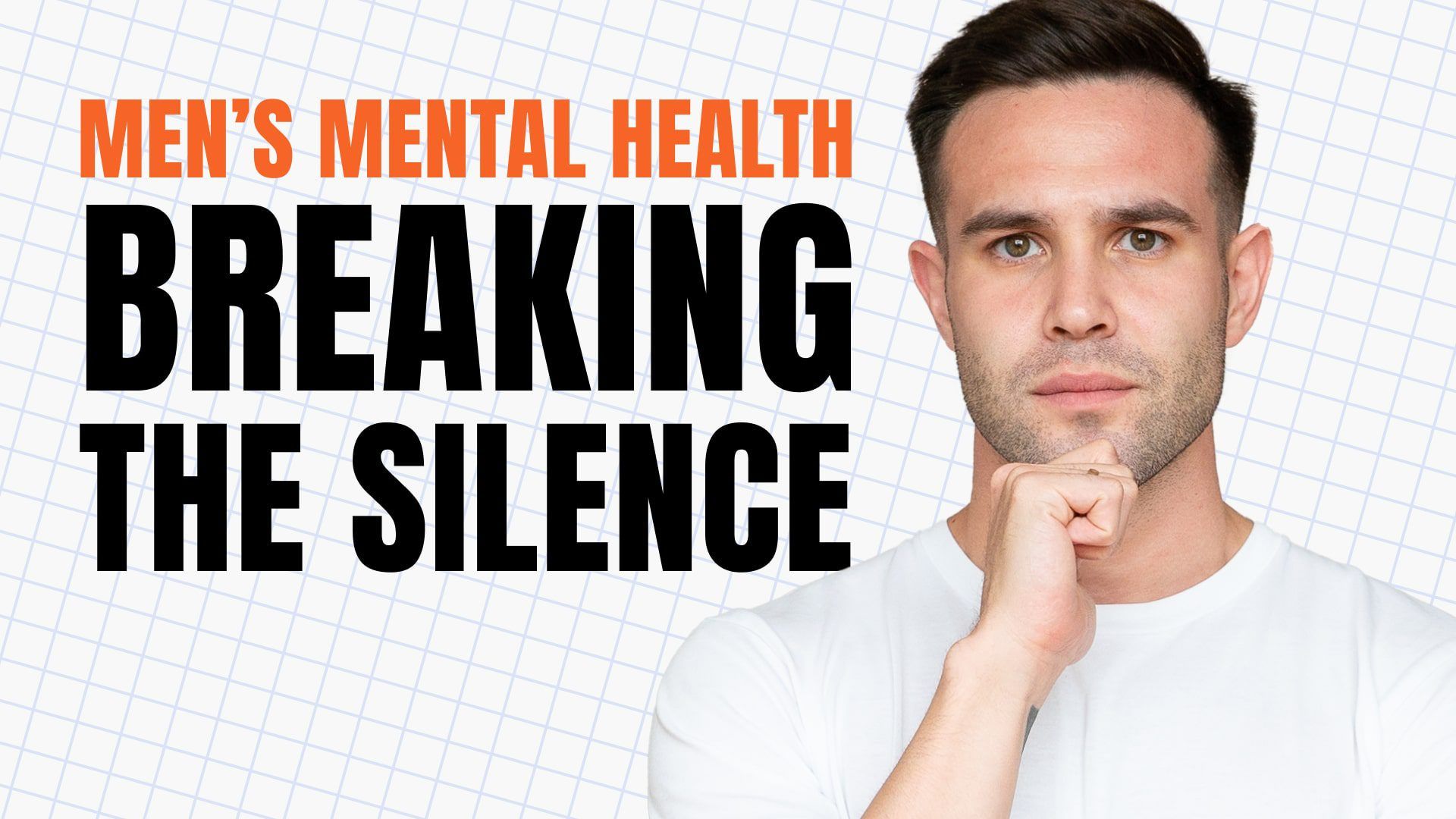
Calculate Your Fat Intake: Fat Intake Calculator + Guide
Table of contents
In this article, you will learn…
In this article, you’ll discover how to accurately calculate your daily fat intake to achieve your health goals, whether it’s maintaining your current weight, losing fat, or gaining muscle. We will break down how the Fat Intake Calculator works, explain its benefits, and provide practical tips on how to use it effectively. By the end of this guide, you’ll have a clear understanding of how to manage your fat intake for optimal health and performance.
Key Takeaways
- Understand the importance of balanced fat intake for your overall health.
- Learn how the Fat Intake Calculator works and how to use it effectively.
- Discover how to tailor your fat intake based on your activity level and goals.
- Get practical tips on optimizing your diet with the right fat intake.
- Learn how to interpret and apply the results of the calculator to your daily life.
How the Fat Intake Calculator Works
Input Parameters
To provide you with accurate recommendations, the Fat Intake Calculator requires a few key details about you. These include your age, gender, height, weight, and activity level. Each of these factors plays a significant role in determining your daily calorie needs and, consequently, your optimal fat intake.
- Age: As you age, your metabolism typically slows down, affecting your calorie needs.
- Gender: Men and women have different metabolic rates, which the calculator accounts for.
- Height & Weight: These determine your Basal Metabolic Rate (BMR), a key factor in calculating your calorie needs.
- Activity Level: The calculator considers how active you are to adjust calorie recommendations accordingly.
Calculation Method
The Fat Intake Calculator uses a combination of your BMR and your daily activity level to determine your overall calorie needs. From there, it calculates how much fat you should be consuming based on a percentage of your total calorie intake.
- BMR Calculation: The calculator uses standard formulas (e.g., Harris-Benedict equation) to estimate your BMR. This is the number of calories your body needs at rest to maintain basic bodily functions.
- Activity Level Adjustment: Depending on your level of physical activity, the calculator adjusts your calorie needs. The more active you are, the more calories—and thus fat—you’ll require.
- Fat Intake Range: The calculator provides a recommended range of fat intake (20-35% of your total calories) to ensure you’re getting enough essential fats without overconsuming.
Understanding the Results
Daily Calorie Allowance
The first key output of the Fat Intake Calculator is your daily calorie allowance. This number represents the total amount of calories you should consume each day to either maintain, lose, or gain weight based on your goals.
- Weight Maintenance: If you’re looking to maintain your current weight, the calculator gives you a calorie target that aligns with your BMR and activity level.
- Weight Loss: For weight loss, the calculator provides a reduced calorie target to create a calorie deficit, helping you shed pounds gradually.
- Weight Gain: If your goal is to gain muscle or weight, the calculator increases your calorie intake to create a surplus.
Daily Fat Allowance
Once your daily calorie needs are established, the calculator determines your ideal fat intake range. This is crucial because fat is a dense source of energy and plays a vital role in various bodily functions, from hormone production to nutrient absorption.
- Fat Intake Range: The calculator suggests a fat intake that makes up 20-35% of your daily calories. This range allows flexibility while ensuring you get enough essential fats.
- Saturated Fat Limit: The calculator also sets a cap on saturated fat intake, typically recommending it to be no more than 10% of your daily calories to promote heart health.
- Tailored Recommendations: The calculator provides personalized fat intake recommendations depending on whether your goal is to maintain, lose, or gain weight, giving you a clear target to aim for.
Practical Applications
Tailoring Fat Intake for Your Goals
The Fat Intake Calculator is not just a tool; it’s your guide to making informed dietary choices. Depending on your goals—whether you’re aiming to lose weight, gain muscle, or simply maintain your current physique—this calculator helps you adjust your fat intake accordingly.
- Weight Loss: If you’re targeting weight loss, the calculator provides a lower fat intake range by reducing your overall calorie intake. This helps create the necessary calorie deficit while still ensuring you consume enough healthy fats.
- Muscle Gain: For those looking to gain muscle, the calculator increases your calorie and fat intake to support muscle growth and recovery.
- Maintenance: If your goal is to maintain your current weight, the calculator offers a balanced fat intake that sustains your energy levels and overall health.
Example Scenarios
Let’s break down a few example scenarios to illustrate how you can apply the calculator’s results in real life:
- Sedentary Individual: A 35-year-old woman who is mostly sedentary may need about 1,800 calories a day. The calculator would recommend 40-70 grams of fat daily, focusing on healthy fats like those from avocados, nuts, and olive oil.
- Active Individual: A 28-year-old man who exercises 4-5 times a week may require around 2,500 calories a day. His recommended fat intake might range from 55-97 grams, ensuring he gets enough energy to support his activity level.
- Weight Loss: For a 40-year-old woman aiming to lose 1 pound a week, her calorie intake might be reduced by 500 calories, leading to a fat intake range of 35-63 grams daily.
These examples show how the calculator adapts to different needs, making it a versatile tool for everyone.
Benefits of Using the Fat Intake Calculator
Precision in Diet Planning
One of the biggest advantages of the Fat Intake Calculator is the precision it brings to your diet planning. Instead of guessing how much fat you should be consuming, this tool provides specific, evidence-based recommendations tailored to your unique body and lifestyle. This precision helps you avoid the common pitfalls of both under-consuming and over-consuming fats, ensuring your diet is balanced and aligned with your goals.
- Customized Recommendations: By taking into account your age, gender, activity level, and goals, the calculator offers a fat intake range that is specifically suited to you.
- Avoiding Guesswork: Rather than relying on generalized advice, you get personalized numbers that make it easier to manage your diet effectively.
Health Improvements
Using the Fat Intake Calculator regularly can lead to significant health improvements. By maintaining an appropriate fat intake, you support essential bodily functions, improve heart health, and enhance your overall well-being.
- Heart Health: The calculator helps you stay within safe limits for saturated fat, reducing the risk of cardiovascular diseases.
- Weight Management: Whether you want to lose, gain, or maintain weight, the calculator’s guidance ensures that your fat intake supports your goals without compromising your health.
- Energy Levels: Proper fat intake is crucial for sustained energy, especially if you’re active. The calculator helps you maintain the right balance, so you don’t feel sluggish or overly fatigued.
Limitations and Considerations
General Guidelines vs. Individual Needs
While the Fat Intake Calculator provides a solid starting point, it’s important to recognize that these recommendations are based on general guidelines. Individual factors such as metabolic rate, medical conditions, and personal preferences can affect your actual fat needs.
- Customization: The calculator offers a good baseline, but you may need to adjust your intake based on how your body responds.
- Listen to Your Body: Pay attention to how you feel—energy levels, satiety, and overall health are good indicators of whether your fat intake is appropriate.
When to Consult a Professional
While the calculator is a useful tool, it’s not a substitute for professional advice, especially if you have specific health concerns or conditions. Consulting with a healthcare provider or a registered dietitian can help you fine-tune your diet to meet your individual needs more accurately.
- Medical Conditions: If you have conditions like diabetes, high cholesterol, or heart disease, personalized advice from a healthcare provider is essential.
- Long-term Goals: For long-term weight management or athletic performance, a dietitian can provide more in-depth guidance beyond what the calculator offers.
FAQ
How does the type of fat I consume affect my overall health?
The type of fat you consume significantly impacts your health. Unsaturated fats, found in foods like avocados, nuts, and olive oil, are considered heart-healthy and can help reduce bad cholesterol levels. Saturated fats, found in animal products and some processed foods, should be limited because they can increase the risk of heart disease. Trans fats, often found in fried foods and baked goods, are harmful and should be avoided as they raise bad cholesterol and lower good cholesterol.
What are the differences between saturated, unsaturated, and trans fats?
- Saturated Fats: These fats are typically solid at room temperature and are found in animal products like butter, cheese, and red meat. Consuming too much can raise LDL (bad) cholesterol levels.
- Unsaturated Fats: These fats are usually liquid at room temperature and are found in plant-based oils, nuts, seeds, and fish. They can help lower LDL cholesterol and are beneficial for heart health.
- Trans Fats: These are artificially created fats used in some processed foods to extend shelf life. Trans fats are harmful and can increase the risk of heart disease, which is why they should be avoided.
Can I rely on the Fat Intake Calculator if I follow a specific diet, like keto or vegan?
The Fat Intake Calculator provides general recommendations that can be adapted to most diets. However, for specific diets like keto (which is high in fat) or vegan (which may require careful planning to get enough healthy fats), you may need to adjust the calculator’s results. It’s a good idea to use the calculator as a baseline and then modify your fat intake according to your dietary goals and restrictions.
How often should I adjust my fat intake if my activity level changes?
You should adjust your fat intake whenever there is a significant change in your activity level. For example, if you move from a sedentary lifestyle to regular exercise, you will need more calories and, consequently, more fat. Conversely, if you become less active, you should reduce your fat intake to prevent weight gain. It’s a good practice to revisit the Fat Intake Calculator periodically to ensure your diet matches your current lifestyle.
Is it okay to exceed the recommended fat intake on certain days?
Occasionally exceeding your recommended fat intake is generally fine, especially if it happens on special occasions or during high-energy activities. However, regularly consuming more fat than recommended can lead to weight gain and other health issues, particularly if the extra fat comes from unhealthy sources like saturated or trans fats. Balance is key, so try to stay within your recommended range most of the time.
How does alcohol consumption affect my fat intake calculations?
Alcohol contains empty calories that can contribute to your daily caloric intake but do not provide any nutritional value. If you consume alcohol, it’s important to account for these extra calories in your overall diet. While alcohol doesn’t directly affect fat intake calculations, the extra calories can contribute to weight gain, which may require adjusting your fat and overall calorie intake.
What are some signs that I’m not getting enough fat in my diet?
Not getting enough fat in your diet can lead to several health issues, including:
- Dry, flaky skin
- Hair loss or brittle hair
- Hormonal imbalances, affecting your menstrual cycle or mood
- Poor absorption of fat-soluble vitamins (A, D, E, and K), leading to deficiencies
- Low energy levels or fatigue If you experience these symptoms, it may be worth revisiting your fat intake to ensure you’re meeting your body’s needs.
Should I use the Fat Intake Calculator differently if I have a medical condition like diabetes or high cholesterol?
If you have a medical condition such as diabetes or high cholesterol, it’s essential to tailor the calculator’s recommendations to your specific needs. For example, individuals with high cholesterol should focus on consuming unsaturated fats while limiting saturated and trans fats. It’s advisable to consult with a healthcare provider or a dietitian to get personalized advice and adjust the calculator’s recommendations accordingly.
How can I ensure I’m getting enough omega-3 and omega-6 fatty acids?
Omega-3 and omega-6 fatty acids are essential fats that your body cannot produce on its own. To ensure you’re getting enough:
- Omega-3s: Include fatty fish (like salmon and mackerel), flaxseeds, chia seeds, and walnuts in your diet.
- Omega-6s: These are found in vegetable oils (like sunflower, safflower, and soybean oil), nuts, and seeds. Maintaining a balance between omega-3 and omega-6 fatty acids is crucial, as excessive omega-6 intake with insufficient omega-3 can lead to inflammation.
What role does fat play in hormone production and overall hormonal health?
Fat is essential for hormone production and overall hormonal health. Fats are the building blocks for hormones like estrogen, testosterone, and cortisol. A diet too low in fat can lead to hormonal imbalances, which may affect your mood, energy levels, and reproductive health. Ensuring you consume enough healthy fats helps support the endocrine system and maintains a healthy hormonal balance.
Can this calculator be used effectively by athletes or bodybuilders with specific dietary needs?
Yes, athletes and bodybuilders can use the Fat Intake Calculator effectively, but they may need to adjust the recommendations based on their higher energy needs. Since these individuals require more calories for performance and recovery, their fat intake may also be higher. However, it’s important for them to focus on healthy fats and maintain a balance with protein and carbohydrates to support their training goals.
What are the best sources of healthy fats to include in my diet?
Some of the best sources of healthy fats include:
- Monounsaturated fats: Found in olive oil, avocados, and nuts like almonds and cashews.
- Polyunsaturated fats: Found in fatty fish (like salmon and sardines), flaxseeds, chia seeds, and walnuts.
- Omega-3 fatty acids: Found in fatty fish, flaxseeds, and walnuts. These fats are beneficial for heart health, brain function, and overall well-being.
How does age affect the recommended fat intake, especially for seniors?
As you age, your metabolism slows down, which means you may need fewer calories, including fats. However, maintaining adequate fat intake is important for seniors because fats support cognitive function, hormone production, and the absorption of fat-soluble vitamins. Seniors should focus on consuming high-quality fats from sources like fish, nuts, seeds, and avocados while keeping saturated fats to a minimum.
Can I use the calculator if I am pregnant or breastfeeding?
Yes, the Fat Intake Calculator can be used during pregnancy or breastfeeding, but you should adjust the recommendations to account for the increased energy and nutrient needs during these times. Pregnant and breastfeeding women typically require more calories and healthy fats to support the growth and development of the baby. It’s best to consult with a healthcare provider to determine the exact adjustments needed for your diet.
How does stress or sleep affect fat metabolism and intake needs?
Stress and sleep have a significant impact on fat metabolism and your overall dietary needs. High stress levels can lead to hormonal imbalances, which might cause your body to store more fat, particularly around the abdomen. Poor sleep can disrupt metabolism, increase appetite, and lead to cravings for high-fat and high-sugar foods. Managing stress and getting enough sleep are crucial for maintaining a healthy metabolism and optimizing your fat intake.
Conclusion
In this guide, we’ve explored how to use the Fat Intake Calculator effectively to manage your diet and health. From understanding the role of fat in your diet to tailoring your intake based on personal goals and activity levels, you now have the tools to make informed decisions about your nutrition. By applying the insights from the calculator, you can better support your weight management, overall health, and long-term well-being.
Remember, the key to success is consistency and making adjustments as needed. Whether you’re aiming to lose weight, build muscle, or maintain your current physique, using the Fat Intake Calculator regularly will help you stay on track.
If you have any questions or need further guidance, feel free to reach out through my blog or social media channels. There, you’ll find more useful guides, tools, and resources to help you on your health journey. I’m here to support you every step of the way.
Works Cited and Relevant Links
- Institute of Medicine. (2005). Dietary fats: Total fat and fatty acids. In Dietary reference intakes: The essential guide to nutrient requirements. National Academies Press.
- National Institutes of Health. (2012). The importance of omega-3 and omega-6 fatty acids. Nutrients, 4(6), 697-710.
- American Heart Association. (2015). Effects of dietary fat on blood lipids and cardiovascular health. Circulation, 132(1), 2025-2041.
- Endocrinology Research and Practice. (2020). The role of fats in hormone production and health. Journal of Endocrinology, 245(3), 223-232.
- Frontiers in Psychology. (2020). The impact of diet on sleep and stress. Frontiers in Psychology, 11, 561320.
I am not a doctor, fitness coach, nutritionist, or trained health professional. The information I share is based on my personal experience, self-research, and insights from working with health and wellness professionals. My content is for informational and entertainment purposes only and is not intended as health advice.
Always consult with your healthcare provider before making any significant changes to your health routines or treatments. I am not liable for any actions taken based on this information.
Your well-being is my top priority. Stay healthy and take care!










Leave a Reply